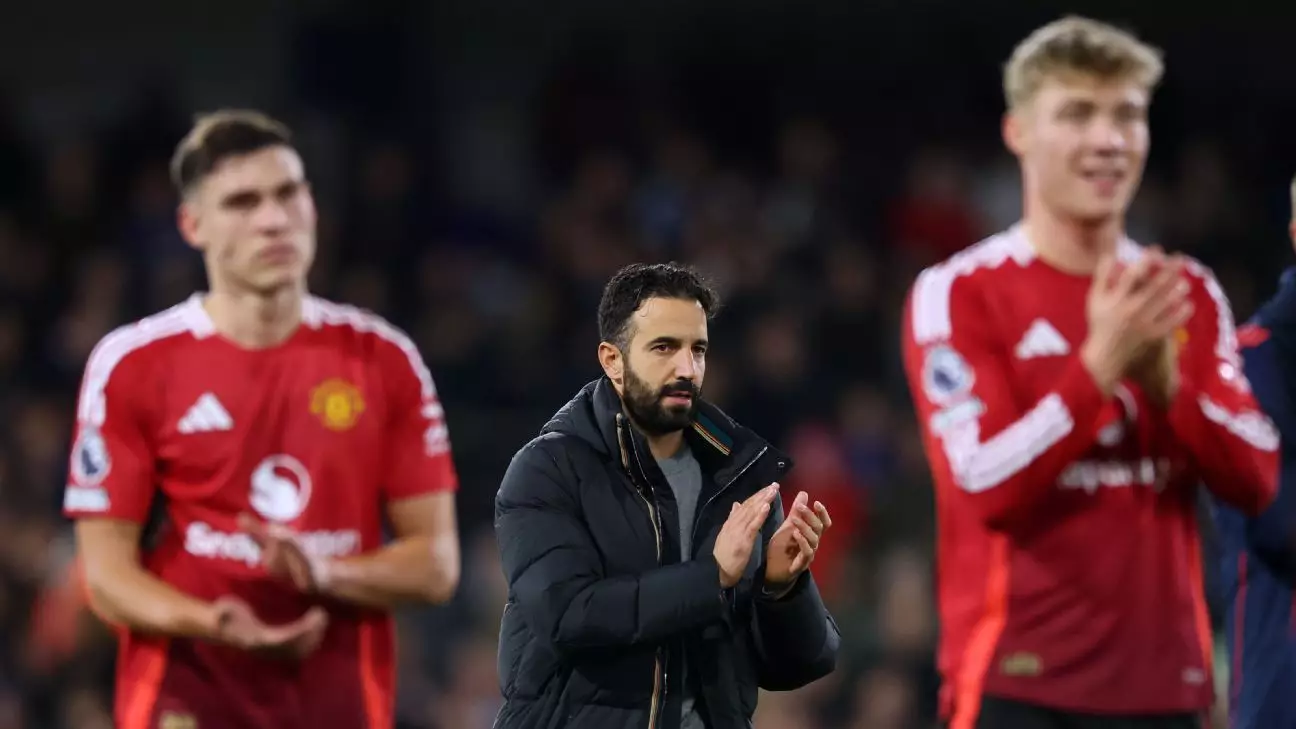The tenure of Rúben Amorim as Manchester United’s head coach began under less-than-ideal circumstances. In his debut match, a 1-1 draw with Ipswich Town left fans yearning for a clearer path to success. Despite an electric start, with Marcus Rashford netting a goal just 81 seconds into the match, the team failed to secure a victory, ultimately allowing Omari Hutchinson to level for Ipswich. This outcome marked a sobering initiation for Amorim, who warned that patience will be critical in the face of immediate challenges.
Amorim’s approach to coaching involves a significant restructuring of Manchester United’s playing style, which he believed would take considerable time to implement. Upon examining the transition from Erik Ten Hag’s methods to Amorim’s proposed tactics, it becomes clear that such rapid change can lead to moments of confusion and hesitation on the pitch. The coach stated that players may be “overthinking” their actions, attributing this mental overload to the limited time he had to instill his vision.
In a sport defined by quick decision-making and fluid movement, the inability to adapt swiftly can hinder collective performance. Amorim’s initial strategy employed a 3-4-2-1 formation, which could have added a layer of complexity for players still accustomed to their previous system. Such tactical adjustments, albeit necessary, require time for understanding and execution.
Despite the tumultuous beginning, Amorim’s resolve to remain faithful to his coaching principles is commendable. He emphasized that the objective is not merely to achieve instantaneous success but to build a sustainable system that could bear fruit in the long run. In his words, “we will suffer for a long period,” encapsulates the tolerance for short-term pain that often characterizes the implementation of long-term success strategies in football.
This philosophy, of prioritizing process over results, serves as an important reminder that transformation, especially in a historic club like Manchester United, will not be instantaneous. The tactical foundations Amorim aims to lay now—ones that include changes in player roles and responsibilities—are essential for future victories.
A critical aspect of Amorim’s approach involves redefining player roles within his system. He publicly challenged players like Diogo Dalot to rethink their instinctual gameplay. Under the previous regime, players were more inclined to push forward, which Amorim is now replacing with a focus on positional play. By instructing Dalot to “pass the ball to centre-backs” and then maintain his position rather than drifting into midfield, he is seeking to instill a greater sense of structure and discipline within the team.
This is particularly vital considering Manchester United’s storied reputation. Fans and observers alike have long commented on the apparent lack of identifiable tactical structure—a narrative Amorim is determined to change. Yet, the tension between evolving individual roles while retaining a coherent team dynamic remains an ongoing challenge.
Looking ahead, Amorim faces a packed schedule that includes league and cup engagements. Such a hectic fixture list provides both a challenge and an opportunity. Striking the right balance in team rotation will be crucial for his program’s success. The coach will need to integrate new methods into training while ensuring that players feel the rhythm of competitive matches.
Speaking on the subject of team rotation, Amorim stated, “I think the only way to do it is we have games.” Such a pragmatic approach illustrates a dual focus: maintaining competitive spirit while allowing room for tactical development. Amorim understands that while results matter, the groundwork he lays now will determine the club’s trajectory moving forward.
Despite the rocky start, there remains a sense of cautious optimism surrounding Amorim’s leadership. With a vision aimed at revitalizing Manchester United, the sooner the team can absorb his philosophies, the quicker they might see improvements. As fans grapple with the transition, Amorim’s commitment to his principles and patient approach could eventually bear the fruits of success.
Ultimately, while the initial results may be disappointing, the real opportunity is the journey ahead. Under Amorim’s guidance, Manchester United could forge a new identity that embraces both historical values and modern tactics, a combination that could catalyze a brighter future.

